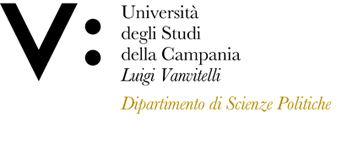Marta CARIELLO
Insegnamento di ENGLISH FOR INTERNATIONAL RELATIONS
Corso di laurea magistrale in RELAZIONI E ORGANIZZAZIONI INTERNAZIONALI
SSD: L-LIN/12
CFU: 8,00
ORE PER UNITÀ DIDATTICA: 48,00
Periodo di Erogazione: Primo Semestre
Italiano
| Lingua di insegnamento | INGLESE |
| Contenuti | L'insegnamento è diviso in due segmenti: il primo segmento sarà focalizzato sullo studio del discorso politico nelle relazioni internazionali, studiato attraverso gli strumenti dei Critical Discourse Studies e le teorie delle relazioni tra linguaggio e potere; il secondo segmento guarderà a casi specifici della comunicazione nelle relazioni internazionali in cui emergono meccanismi di “othering” e di relazioni gerarchiche, asimmetriche o paternalistiche. Per il syllabus del Laboratorio di Lingua Inglese, consultare la relativa sezione. |
| Testi di riferimento | Alan Partington, Charlotte Taylor, The Language of Persuasion in Politics: An Introduction. Oxon and New York: Routledge, 2018; |
| Obiettivi formativi | Lo studente dovrà dimostrare una soddisfacente comprensione e conoscenza dei temi fondamentali del corso. Lo studente dovrà inoltre dimostrare un’approfondita conoscenza dei temi affrontati durante il corso, e di riuscire a discutere delle costruzioni e usi della lingua inglese nella relazioni internazionale, delle strategie retoriche più comuni e delle relazioni di potere di cui la lingua è parte. |
| Prerequisiti | C1 CEFR English |
| Metodologie didattiche | Il corso si svolge mediante lezioni frontali e con supporto informatico, con visione di video e film. Un parte delle lezioni sarà dedicata alla discussione del lavoro individuale di ricerca per l’elaborato finale. |
| Metodi di valutazione | L’esame prevede la scrittura in lingua inglese di un elaborato finale (circa 10 cartelle) da discutere in sede d’esame. |
| Altre informazioni | I non frequentanti sono invitati a contattare la titolare dell’insegnamento per concordare il programma d’esame obbligatorio e l’argomento dell’elaborato finale. |
| Programma del corso | Il corso sarà dedicato allo studio del discorso politico nelle relazioni internazionali. Saranno utilizzate le metodologie dei Critical Discourse Studies e delle relazioni tra potere e linguaggio per studiare i discorsi e le narrazioni mediatiche attorno alle relazioni internazionali. Le radici imperialistiche del sistema-mondo moderno e la costruzione di relazioni asimmetriche, paternalistiche o gerarchiche nel linguaggio delle relazioni internazionali saranno analizzate e studiate, incoraggiando i progetti individuali e di gruppo. L’acquisizione del quadro teorico in cui analizzare e discutere il discorso delle relazioni internazionale corrisponde a 4 CFU; l’acquisizione delle capacità di ricerca ed elaborazione critica |
English
| Teaching language | English |
| Contents | The course is divided into two segments: the first segment will focus on the study of political speech in International Relations, through the tools of Critical Discourse Studies and the relation between language and power; the second segment will look at specific instances of International Relations communication in which mechanisms of “othering” and of explicit or subtle asymmetrical, paternalistic or hierarchal relations are established through the official narrative of International Relations. For the English Laboratory syllabus, see the specific section. |
| Textbook and course materials | Alan Partington, Charlotte Taylor, The Language of Persuasion in Politics: An Introduction. Oxon and New York: Routledge, 2018; |
| Course objectives | Students must reach a more than satisfactory level of comprehension and knowledge of the main themes of the course. They must be able to analyse and discuss the uses and constructions of the English language in International Relations, the most common rhetorical strategies used, and the power relations such language is a fundamental part of. |
| Prerequisites | C1 CEFR English |
| Teaching methods | The course consists in lectures, delivered with the help of audio-visual tools and web and computer devices. Part of the lessons will used to discuss the students’ personal research projects and final papers. Online and offline, as well as print material will be provided. |
| Evaluation methods | The exams consists in a written paper (long essay about an individual research project, about 10 pages), which the student will discuss. |
| Other information | Students to attending classes must contact the professor in order to discuss the study material and their personal research project and paper. |
| Course Syllabus | The course will focus on the study of political speech in International Relations. Critical Discourse Studies and theories of power-language relations will be used to look at political speeches and media narratives within and about International Relations. The imperial roots of the modern world-system and constructions of asymmetrical, paternalistic or hierarchal relations in the language of International Relations will be analysed and researched, encouraging individual and group research. The acquisition of the theoretical and critical framework through which to analyse and discuss the discourse of international relations corresponds to 4 CFU; the acquisition of research and language skills corresponds to 4 CFU. |








